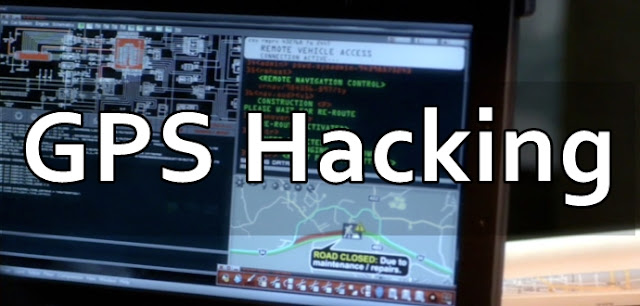GPS spoofing and dangers of GPS data hacking
 |
| GPS spoofing and dangers of GPS data hacking |
Hacking Global Positioning System with GPS ‘Spoofing’ Can Lead To Fatalities
Imagine you are relying on Google Maps and suddenly it leads you to an unwanted/dangerous place. Up to now this would be considered a Google Maps glitch but hackers can actually hack your smartphone GPS and make it send you to a location of their choice. Welcome to the reality of GPS spoofing.
With GPS becoming the mainstay for hundreds of Apps and a plethora of location-based services hitting the market, GPS hacking is a dangerous problem. Global Positioning System data can be hacked to used to create serious problems — even life-threatening ones — if control falls into the wrong hands.
GPS Spoofing
Meet Dinesh Manandhar, a project associate professor at the University of Tokyo, who is working on developing systems to prevent what’s called GPS spoofing — the falsification of location data. Dinesh says that GPS spoofing or making your smartphone believe false location coordinates is extremely easy. A hacker just needs to lay his hands on an instrument called a GPS simulator. Used by manufacturers to test the accuracy of their products, GPS simulators generate the same kind of signals as GPS satellites, and can thus alter the location information received by devices such as smartphones, car navigation systems, and others devices.
GPS simulators are currently available for $8000 but grabbing a used one is relatively easy and cheap. “You can falsify your smartphone’s information and make it look like you are going back and forth between Tokyo and Hawaii within just three minutes,” says Dinesh.
The latest gaming sensation, Pokemon Go saw a wide use of such GPS spoofers for gaming hacks. Some players were found to be tweaking the GPS information in their smartphones to let them catch rare characters in far-flung places without setting foot outside home. Some have even posted YouTube videos showing how to do it.
Although the Pokemon Go hack hasn’t yet led to a major incident, Dinesh said that GPS spoofing could be used to attack someone as companies continue to turn more of our machines and appliances into remotely controllable objects.
For example, if autonomous cars become popular, a hacker could one day remotely force it to crash into a wall or another vehicle, causing a fatal accident, he said. Dinesh says that GPS spoofing can also be used to break a security technology called geofencing, which uses GPS data to create virtual boundaries that restrict access to classified information when outside certain locations.
“Let’s say I were a top manager of a major bank. I could access all the information while sitting at my desk, but I wouldn’t be able to access it from the room next to it,” says Dinesh. “But people could get access to such information if they disguised the location information received by computer.”
Although the dangers of GPS spoofing have been pointed out in academic circles since the early 2000s but governments and businesses have ignored them up until now. This was because there weren’t many devices or Apps making use of location-based technologies. However, with the GPS spoofing simulators getting cheaper and easily available, governments and companies would have to do something drastic to protect GPS apps and devices from getting hacked.


Comments
Post a Comment